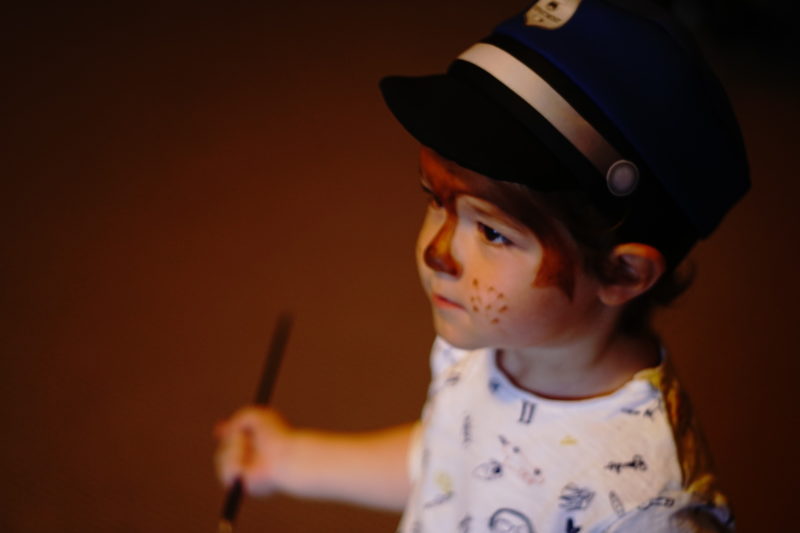A couple of months ago, after he came home from daycare, my two-and-a-half-year-old son tried to climb the walls in his bedroom and cried, out of frustration, for a good hour, because he could not do it. I talked to him about it. He said he was Spiderman and that’s what “the big boys” said Spiderman did. (He had never seen a Spiderman picture or movie at home, ever.) Obviously, they were playing superhero games at daycare. (And there is nothing wrong with that.) I had to explain to him that Spiderman was a made-up character like the monsters and dragons in his storybooks. He can pretend to be Spiderman and pretend to climb the wall, but just like he cannot breathe fire when he plays dragons, he will not be able to stick to the ceiling. You can imagine he was very disappointed!
After a while, he asked me: “Mama, what’s a superhero? “
“Someone with special powers who keeps us safe,” I said.
“Ah, like a fireman and a policeman!”, he realised.
“Exactly!”, I said.
He thought about it for a minute then asked: “Do they fight?”
“They shouldn’t need to”, I told him.
Call me naive, but I want to keep it this way in his head, for a little longer. He will have plenty of time to play superheroes in the near future when he will be able to understand more about this whole good/evil concept and about what “killing the bad guys” means.
How soon is too soon to introduce superhero play?
We have tried really hard to keep our son away from screens – movies with any kind of violence. He is still struggling with controlling his impulses. “Superhero” is a concept he can’t yet grasp at the age of 2,5. I am afraid it might just give him an excuse to hit everyone or confuse him. We have been working for months on teaching him to be gentle towards other children. Being in an environment where children (pretend) fight each other might be seen as an excuse to be violent. I am aware that teachers do not actually tell children to hit each other, but you get my point. (Even if they just pretend-fight, especially if they use toy guns as well, getting hurt is inevitable. Plus, a 2-year-old can perceive the bad-guy/good-guy fighting differently than let’s say a four or five-year-old.)
As an educator, I know that pretend play is critical for young children’s healthy emotional and social development.
I know that when they play superhero games, children can work through feelings of anxiety and fear about their own safety.
I know it helps them express their anger and aggression and become comfortable with these feelings.
I know that boys especially need their “rough-and-tumble play”.
I know the superhero games can be a fun and magical part of childhood. I know all the positive aspects of superhero-pretend-play and I don’t argue with any of them.
Educators and parents who are worried children will later in life be liable to have an aggressive behavior want superhero play banned from schools and even homes.
But I don’t think that banning superhero play is the solution to children’s aggressivity. It only sends the message that they must hide their interests from adults and that it is wrong for them to be interested in issues of power and control. And trust me, in a world controlled by adults, kids need some control!
It is true that the superhero culture can become consuming, especially if kids are watching the movies, playing with the toys, strongly identifying with the characters and losing touch with reality. Balance is the key.
Along with the benefits of superhero play, that can be gain by children through pretend-play in general, this case study shows ways adults can successfully manage the superhero play.
The way I would do superhero-play in my classroom is very similar to Jaqueline Radell’s approach. She encouraged preschoolers to create their characters based on storybooks and their imagination and not on the media. Then, she identified children’s interests and prepared prop boxes with materials like magnifying glasses, binoculars, and cameras. Another important aspect she talks about is timing: children will be introduced to superhero play only after they show signs of self-regulation and after they spend the majority of the school year on building relationships with each other and the teachers.
In conclusion, children benefit from superhero play if it is introduced at the right time, in the right way. with the right support.
